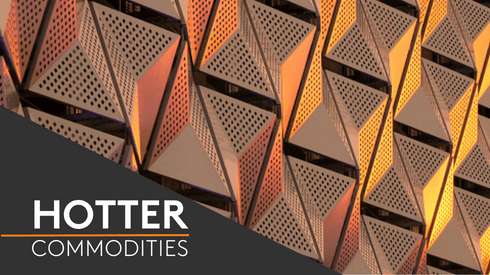In January 2024, Alcoa announced that it would curtail operations its Kwinana Alumina Refinery in Western Australia, citing high operating costs as a key consideration and sparking a discussion on Australia’s future in the alumina and bauxite markets.
“These assets are in general very expensive to run, and they require a lot of sustaining capital,” Ben Lindsey, vice president of alumina and bauxite sales at Alcoa, said on the panel. “The age and competitiveness of the refinery just became untenable when you look at it on a long-term basis.”
Another key factor in the decision was the choice to continue production of lower-grade bauxite until at least 2027, due to delays in the mine approval process.
“Obviously, [there were] issues with the licensing – we were very transparent about that,” Lindsey said. “At the end of last year, we were able to get the approvals [necessary for] our five-year mine plans in Western Australia, which was good. We’ve been working very proactively with the government, and now the Western Australia Environmental Protection Authority [WAEPA].”
Lindsey also noted that the proximity of the alumina and bauxite operations to urban centers presented a greater ESG challenge, compared with those facing other miners in Western Australia.
“There are a lot of things we need to make sure we’re doing in the right way,” he said. “A lot of these operations are very close to communities and very close to urban centers. This is very different to [the situations for producers of] iron ore.”
Iron ore operations in Australia are predominantly located in the Pilbara region of Western Australia, a relatively remote area of the country.
“We want to make sure that we maintain our license to operate, and that the people that live and work in these communities also feel like we are creating value,” he added.
Similar ESG-related concerns have been apparent at South32 recently, with the WAEPA recommending a variety of conditions to be imposed on the company’s Worsley Mine Development Project, which has challenged the feasibility of the project in recent months.
Worsley Alumina is a bauxite and alumina refinery operation in Western Australia with capacity for around 3.8 million tonnes per year of alumina.
Dennis De Sepibus, general manager for freight, alumina and raw materials at South32, said on the panel that these conditions were “unreasonable.”
“It puts into question the viability of not just the economics [of the operation] but the operation itself,” he said. “It makes it very difficult to operate there, so we have lodged an appeal, and we hope to have more clarity by the end of the year.
“We are working very closely with the government to understand the scientific background to some of the conditions,” he added. “We have a lot of data to draw on, and to show that the practices that we’ve been working toward are very sustainable. So we’d like to understand how the lines were drawn.”
Keeping Australia at center stage
Despite the challenges, there remained a largely positive rhetoric around producing alumina in Australia, with Lindsey noting that Alcoa is “very committed to doing business in Australia.”
“Australia remains very attractive. It has a very robust resource base. And when you look at it from a simple country-risk perspective, it’s one of the best countries in the world to do business,” Lindsey said.
“It [represents] a pretty significant vote of confidence in the business there that we just acquired our joint-venture partner, Alumina Ltd,” he added. “We paid about US$2.8 billion for it, and that effectively gives us more exposure to the Australia business.”
De Sepibus shared a similar sentiment on the panel, saying that “what we do in Australia is not unique to Australia, it’s what we do in the rest of the world.”
“We operate to high standards,” he said. “That doesn’t just include the operation itself but the supply chain as well. When people buy from us, they have some certainty that they’re getting a product that, through the supply chain, is responsibly sourced and well managed.
“I think that is something that we’ll continue to deliver, and we hope that we’ll be able to continue to deliver that in Australia,” he said.
Fastmarkets calculated its daily benchmark alumina index, fob Australia, at $535.63 per tonne on September 17, up by 52.8% compared with $350.53 per tonne at the beginning of the year.
The index’s almost-constant rise this year has been in response to a variety of supply-side pressures, largely in Australia.
To understand the complex market conditions influencing price volatility, download our monthly base metals price forecast, including the latest aluminium price forecasts today. Get a free sample.




